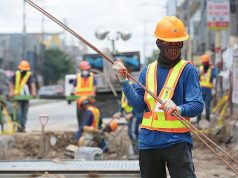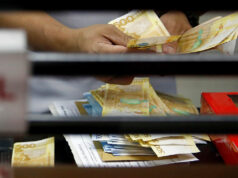A HOUSE committee has scheduled a inquiry for next week on the influx of foreign currency to determine whether these cash imports by travelers constitute money laundering.
“I think this is so serious a topic, that we must not let it just go. So I feel the obligation to motu proprio conduct an investigation and I think this will give us a great opportunity to look into the loopholes of our existing policy on this movement of funds,” Quirino Representative Junie E. Cua, who chairs the committee on banks and financial intermediaries, said at a hearing Wednesday.
Official actions taken on a motu proprio basis refer to moves undertaken on an agency’s own initiative, without being requested to do so.
Mr. Cua said that as long as the money is declared, anyone can bring money into the country, even if it exceeds the $10,000 declaration threshold for travelers.
“Under our rules, when you carry more than $10,000 for as long as you declare it, then you are allowed to bring that in. So doesn’t that trigger suspicion… (and set off) some kind of an alarm?” he said.
“I think there should be a process of validation before we really allow them to come in. We need to validate first the origin, where it’s from, (and what it will be used for),” Mr. Cua added.
According to Anti-Money Laundering Council (AMLC) Executive Director Mel Georgie B. Racela, bringing in foreign currency is not deemed suspicious.
“The bringing in of foreign currencies is not a suspicious activity per se. So it’s merely false declaration or misdeclaration that they are looking into. If you fully and accurately disclosed the currency you are bringing in, all jurisdictions will leave you free,” he said.
Mr. Racela said that if funds do not pass through the banking system, they can pass through to other entities such as casinos and online gaming operators, which are subject to money-laundering rules.
He noted, however, that funds can still enter through the real estate industry, a sector not covered by the AMLC, offering a channel for the entry of dirty money.
“If their reason is to purchase real properties, condominiums, that is where the loophole will come in because we have not covered the real estate brokers and developers. But if we cover them, if we include them, then the reporting system… will be implemented by that sector and we will be able to gather information on that,” Mr. Racela said.
The AMLC has signed a Memorandum of Understanding (MoU) with the Bureau of Customs (BoC), Bangko Sentral ng Pilipinas (BSP), and Bureau of Investigation (BI) in relation to the “implementation of foreign currency declarations,” Mr. Racela said.
“So the primary mover and the one that is actually regulating foreign currency movements is the BSP and we are merely implementing BSP Circular Number 308. And the primary implementer in the airport is the Bureau of Customs. Pursuant to our MoU, the Bureau of Customs should forward these declarations, as well as the summary of these declarations… to the AMLC,” he said.
BSP Circular No. 308 provides that “any person who brings into or out of the Philippines foreign currency in excess of $10,000 or its equivalent is required to declare the same in writing and to furnish information on the source and purpose of the transport of such currency.”
As per current rules, Mr. Racela said the AMLC can only verify from their “financial intelligence unit counterparts” the legitimacy of funds entering the country. — Genshen L. Espedido



